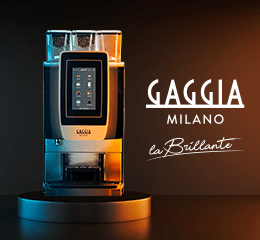By Ji Xiang*
SHANGHAI, People’s Republic of China – China’s booming coffee market is dominated by global brands like Starbucks and Costa. But as coffee drinking catches on, what’s left for China’s home-grown, independent coffee sellers?
“The number of independent cafes in China is substantial, but their operations are hardly satisfying. More than 50 percent of them are unprofitable,” explained Wang Le, chief marketing officer of Shanghai Foamka Information Technology Co.
Located at IF Geek Space, a three-story business incubator on Pingwu Road in Changning District, Foamka is in the business of helping local coffee purveyors expand their businesses. It offers a number of services, ranging from old-fashioned wholesaling to online delivery management and social media promotion.
For starters, Foamka buys coffee beans and other ingredients in bulk and then sells them at a discount to independent shop owners. It also sells its own pastries to local cafes and trains coffee shop staff on the secrets of making perfect coffee drinks.
Meanwhile, it operates a platform online where customers can arrange coffee delivery from shops in its network. It also arranges coffee delivery through platforms like Meituan and Baidu Takeaway.
Since the company opened in June 2015, about 200 independent cafes have united under the Foamka banner and used its services.
According to Wang, this means local coffee shops can maintain their identity while also enjoying the benefits of being in a larger network.
“There may not be a single way to wrest market control away from foreign brands,” said Wang. However, he added, online services like those offered by Foamka are “a good, or maybe even the best, solution at present.”
To reach costumers and promote brand awareness, Foamka operates two public WeChat accounts, “Foamka” and “Foamkacrew.”
The “Foamkacrew” account acts as the company’s main customer platform. Through this account, customers can place orders, receive coupons and stay up to date about company activities and events.
The “Foamka” account is used to spread media content which the company hopes will interest its primary clientele: young professionals with office jobs. The content includes articles about art and design, music, recipes and photo essays.
“In our first series of character profiles, we focused on people with arm tattoos,” says Annie Chen, a member of Foamka’s marketing department. “White collars — our target customers — generally lead regular lives, starting work at 9am and going home at 5pm, so they may yearn for the wild and exciting.”
As of mid-January, Foamka’s online sales network includes 46 shops in Shanghai. The company receives about 1,500 orders per day via its ordering platform. By the middle of the year, Wang believes the company could be handling orders for as many as 30,000 cups of coffee every day.
Wang, a doctor-turned-businessman, was persuaded to open a coffee business by the enormous potential of the Chinese market.
“Though China has relatively few coffee drinkers, their numbers grow by about 70 to 80 percent annually,” said Wang. “Coffee is now the preferred beverage in tea-loving countries like Britain, South Korea and Japan. The same could happen in China.”
“Besides, no powerful state-owned companies have stepped into this field yet,” he added.
The entrepreneur also sees the value in letting his employees develop their own niche skills.
“When each person tries their best in their specialty, their combined force will be so powerful that it can drive the company in the right direction,” Wang said.
Wang isn’t the only one convinced of his company’s potential. The company attracted 400,000 yuan (US$60,840) from early-stage investors. In the future, it plans to cooperate with private equity companies.
Online future
King Jiang, in her early 30s, is Foamka’s resident coffee expert. King has over a decade of experience in food service, including six years working at Starbucks.
“It was at Starbucks that I changed myself from a layman to a coffee expert,” said King, who also expressed gratitude toward the US-based coffee giant which is now one of Foamka’s biggest competitors.
When asked about the difference between working for a physical coffee shop and an online coffee platform, Jiang said that companies like Foamka excel at gathering useful sales data and staying connected with customers.
“You have to wait until a customer enters your shop when running a physical coffee shop. In spite of all its sales tricks, Starbucks has to wait for its customers,” King said, adding that “the future is heading onto the mobile Internet.”
An advocator of Internet age, Jiang still keeps on learning from physical coffee stores like Starbucks. She would visit Starbucks’ flagship store in Xintiandi and listen to assistants’ introduction.
“Staff members of our coffee division are either winners of coffee awards or coffee experts with rich experience,” Jiang said.
The menu on the company’s “Foamkacrew” account includes hot chocolate, caramel macchiato, mocha, latte and Americano. Drink prices range from 15 to 24 yuan. More choices will be available soon.














